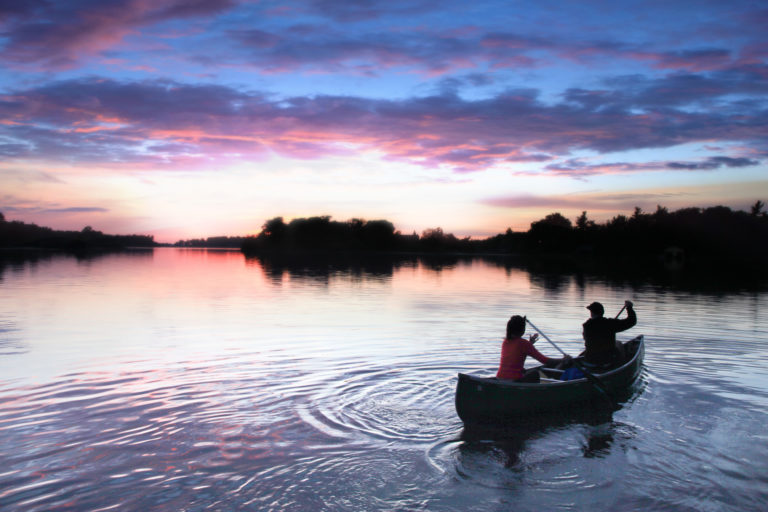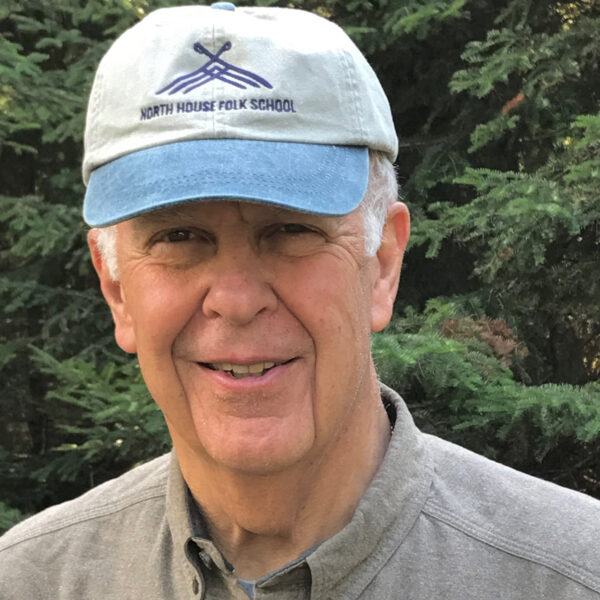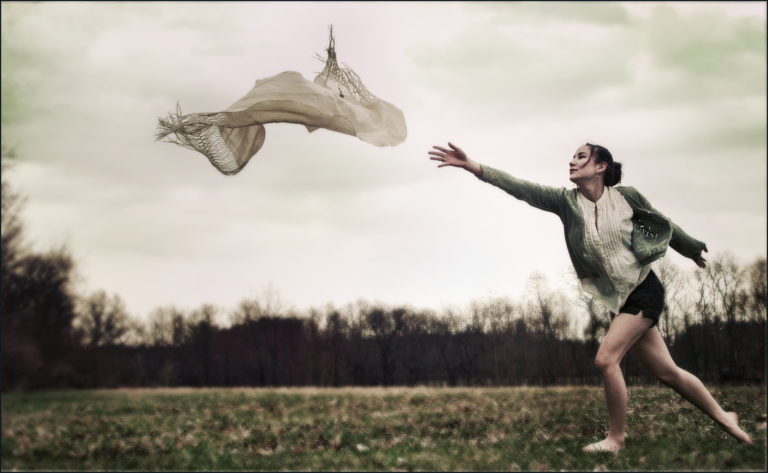
Image by Chris Ford/Flickr (CC BY-NC 2.0)..
On the Brink of Everything: An Early Morning Meditation
Last Friday, in this space, my friend and colleague Courtney Martin posted a column titled “Reuniting with Awe.” It painted an exquisite picture of how her sixteen-month-old Maya helps her see life’s wonders through a toddler’s eyes.
As I began reading that essay early Friday morning, I was mesmerized by its opening line — “My daughter is on the brink of everything” — because that’s where I am at age 76. I’m frequently awestruck as I stand on the brink of the rest of my life, including that part of life called death which I can sometimes see from where I stand.
I’d be a pants-on-fire liar if I claimed to be awed by all that comes with old age. Courtney writes about her daughter scooping “haphazard little bits of cottage cheese into her mouth” then applauding herself between bites. My mealtime storyline does not include applause. At dinner last night my wife grinned, pointed to her chin, and said, “You’ve got food on your face again. And on the back of your hand.” Reaching for a napkin, I grumped, “I was saving it for a snack.”
Courtney writes that when she takes her daughter out for a walk, Maya bounces “with the delight of freedom” and “quickly swivels around” to make sure her mom is following. If I bounced and swiveled while out on a walk, I’d land on my keister and need to be schlepped to my doctor ASAP.

Speaking of my doc, like many people my age I live with a couple of challenges to my health that, praise be, pose no imminent threat. But when you suddenly become “interesting” to your physician after boring him or her for many years, it gives you pause — especially as you watch more and more family members, friends, and colleagues die. Yet it’s because of the diminishments of age, not in spite of them, that I often find myself in awe as I stand “on the brink of everything.”
The morning Courtney’s essay was posted, I woke up (an awesome event when I consider the alternative), I paused on the edge of the bed to gather my wits, then made my way to a room I visit once or twice a night. It’s winter in Wisconsin, and the east-facing window was filigreed with ice. The horizon behind the bare trees was aglow with a crimson sunrise that, seen through the tracery of ice, turned the pane into stained glass. For several minutes I took in that scene if I were admiring a great cathedral through a rose window.
I went downstairs, turned up the thermostat, and began heating water for coffee. Twice-warmed by the whisper of the furnace and the hissing burner on the gas stove, I was thrice-warmed as I read a handwritten letter thanking me for a book I wrote 15 years ago. “That book,” the writer said, “saved my life.” As I laid the letter down, I recalled all the early mornings in times past when, driven to get on with my writing, I failed to pause long enough to look out on the loveliness of an awakening world.
I’ve always been an obsessive writer, and, before age slowed me down, my rush to write sometimes kept me from seeing the beauty around me. Part of me regrets that fact. And yet, back then — focused laser-like on surveying and mapping what’s “in here” to the exclusion of what’s “out there” — I was able to write something that helped a stranger find new life. Looking back, I’m awed by the way embracing everything, from what I got right to what I got wrong, invites the grace of wholeness.

When Florida Scott-Maxwell was 85, she wrote in The Measure of My Days:
“You need only claim the events of your life to make yourself yours. When you truly possess all you have been and done…you are fierce with reality.”
That’s how I feel when I’m able to say:
“I am that to which I gave short shrift and that to which I attended. I am my descent into darkness and my arising into light, my betrayals and my fidelities, my failures and my successes. I am my ignorance and my insight, my doubts and my convictions, my fears and my hopes.”
Wholeness does not mean perfection: It means embracing brokenness as an integral part of life.
The teakettle whistled and I filled the French press with boiling water. As I waited for the coffee to brew, I booted up my iPhone, went to the On Being site and read Courtney’s essay. By the time I finished, I had begun to brew this piece, aware of how much had already awed me as I stood on the brink in this early morning hour.
Every hour I stand closer to death than I did the hour before. All of us draw closer all the time, but rarely with the awareness that comes when the simple fact of old age — or a serious accident or illness — reminds us of where we stand. I have no wise words about dying and death. I’ve watched loved ones die in fearful anguish, others in joyful anticipation. How I will travel that last mile, I have no idea. As for death and its aftermath, I’m not privy to reports from the other side. But I’ll know I’ve made it to Heaven if I can get early-morning coffee there, and I have reason to believe that’s a possibility. I’m told they can dark-roast coffee beans in The Other Place.
What I know for sure is this: We come from mystery and we return to mystery. I arrived here with no bad memories of wherever I’d come from, so I have no good reason to fear the place to which I’ll return. And I know this, too: Standing closer to the reality of death awakens my awe at the gift of life.

Last Friday morning, that gift included seeing the world at sunrise through a rose window; reading a stranger’s generous letter alongside a friend’s evocative essay; possessing the physical and mental capacity to make coffee, climb the stairs, and start working on this piece; and having a laugh with myself about coffee roasted in Hell and served in Heaven. How could I abide my own gravitas without the leaven of humor?
Courtney says that her daughter “approaches the world with only one giant, indiscriminate expectation: delight me.” Like sixteen-month-old Maya, I want to approach the world with only one expectation as I stand “on the brink of everything” at age 76.
I’m old enough to know that the world can delight me, so my expectation is not of the world but of myself: Delight in the gift of life and be grateful.

